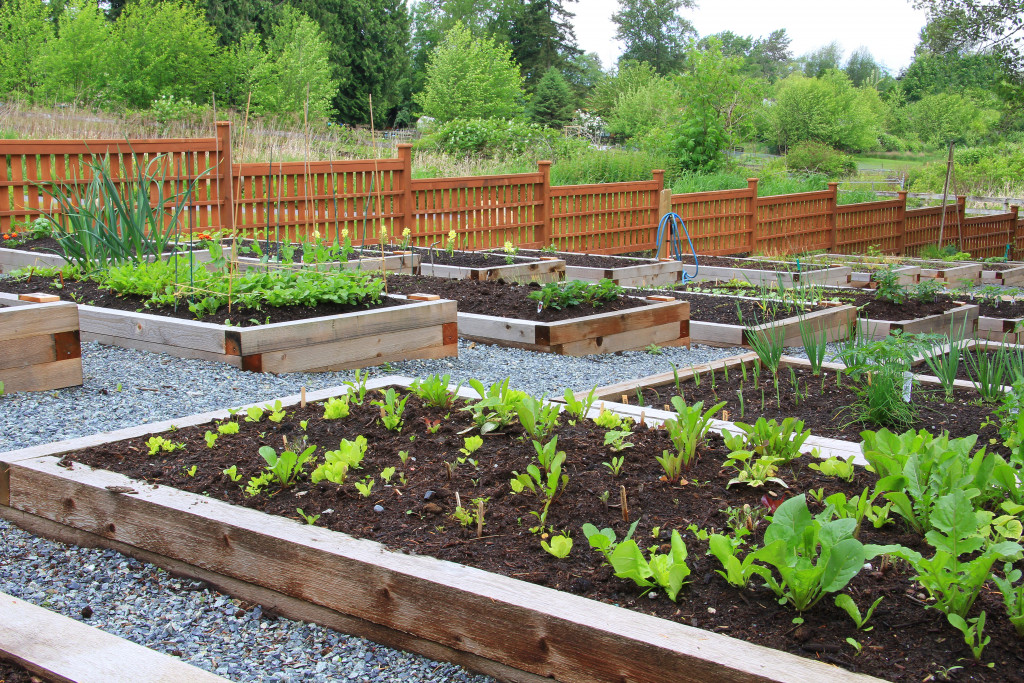- Gardening is gaining popularity, especially among millennials, due to its health and environmental benefits.
- Residential gardens provide fresh produce, stress relief, curb appeal, and a learning experience.
- Gardening helps reduce carbon footprints and harmful emissions from industrial farming.
- Essential components of a residential garden include fences, irrigation systems, and nutrient-rich soil.
- Research the types of plants suitable for your climate and location before starting a garden.
In the modern age, life has become fast-paced, and most people’s daily routines are consumed with their work and personal lives. But amidst all this, people overlook the benefits of having a residential garden. Gardening is not just a hobby for some; it can be therapeutic and lessen carbon emissions. More and more people are starting a garden because of these benefits.
Increasing Amount of Gardeners
Gardening has become a popular hobby among many people, especially millennials. Statistics show that the number of gardeners in the United States increased by 17 percent between 2009 and 2018. The millennial generation is more interested in sustainable living, and gardening as a lifestyle choice has also become more popular.
Numerous Benefits
From health to environmental benefits, there are many advantages to having a residential garden. Some of these benefits include:
A Chance to Grow Your Produce
One of the significant benefits of having a residential garden is that it enables you to grow fresh produce. Most fruits and vegetables are surprisingly easy to grow at home, which can help you save on grocery expenses. It also helps reduce your carbon footprint by eliminating the worldwide transport and packaging that comes with store-bought produce.

Therapeutic and Mood-Boosting
Gardening is not only an excellent hobby, but it is also therapeutic. Studies have shown that gardening is related to stress relief, lowering blood pressure, and reducing symptoms of depression. The act of gardening can be a refreshing and nurturing experience that allows you to take a break from the digital world and reconnect with nature.
It Enhances Your Home’s Curb Appeal
A well-manicured residential garden can showcase your home’s beauty and enhance its curb appeal. A well-maintained garden can significantly uplift your mood and create a peaceful atmosphere. Additionally, gardens can be an excellent space for entertaining family and friends or enjoying a quiet moment.
A Learning Experience
Gardening can be a learning experience, especially for novice gardeners. You will learn different plant tricks and techniques to plant effectively and tend to your garden. Gardening can be utilized as a way of teaching children about nature, healthy eating, and where their food comes from.
Helps the Environment
Lastly, starting and maintaining a residential garden can positively affect the environment. The emissions from industrial farming can significantly harm the environment. By growing your produce or flowers, you can reduce the carbon footprint and environmental impact of agriculture. Additionally, having a residential garden can help increase the air quality by taking in harmful gases, making your home’s surroundings cleaner and fresher.
How to Get Started
Now that you know the fantastic benefits of having a residential garden, it’s time to start. Here are some essentials you’ll need:

Fences
Your garden needs to be protected from all sorts of animals, insects, and other pests. Consider installing a fence to stop animals from entering your garden and destroying the plants. The best option has a composite fence. You can purchase composite fencing panels and install these yourself. Better yet, you can hire a professional to install your fence.
Irrigation
An irrigation system is essential for your residential garden, especially during summer when temperatures are high and the sun’s rays are intense. An automated watering system can help ensure your plants have enough water, even when you’re away from home.
Soil
The quality of soil plays a crucial role in the success of your residential garden. You need to ensure your soil is rich in nutrients and pH balanced. You can also buy compost or add organic material such as mulch, manure, or peat moss to enrich the soil’s quality.
The Right Plants
Finally, it’s vital to choose plants that are suitable for your climate and location. Research different types of plants and pick ones that are easy to maintain. However, certain plants, such as vegetables and herbs, may require more attention. Consider hiring an expert gardener if you need assistance.
Despite the hustle and bustle of our lives, starting a residential garden is an excellent way to relax, connect with nature, increase your home’s appeal, reduce your carbon footprint, and help the environment. Follow these steps when starting your garden for an enjoyable gardening experience.

